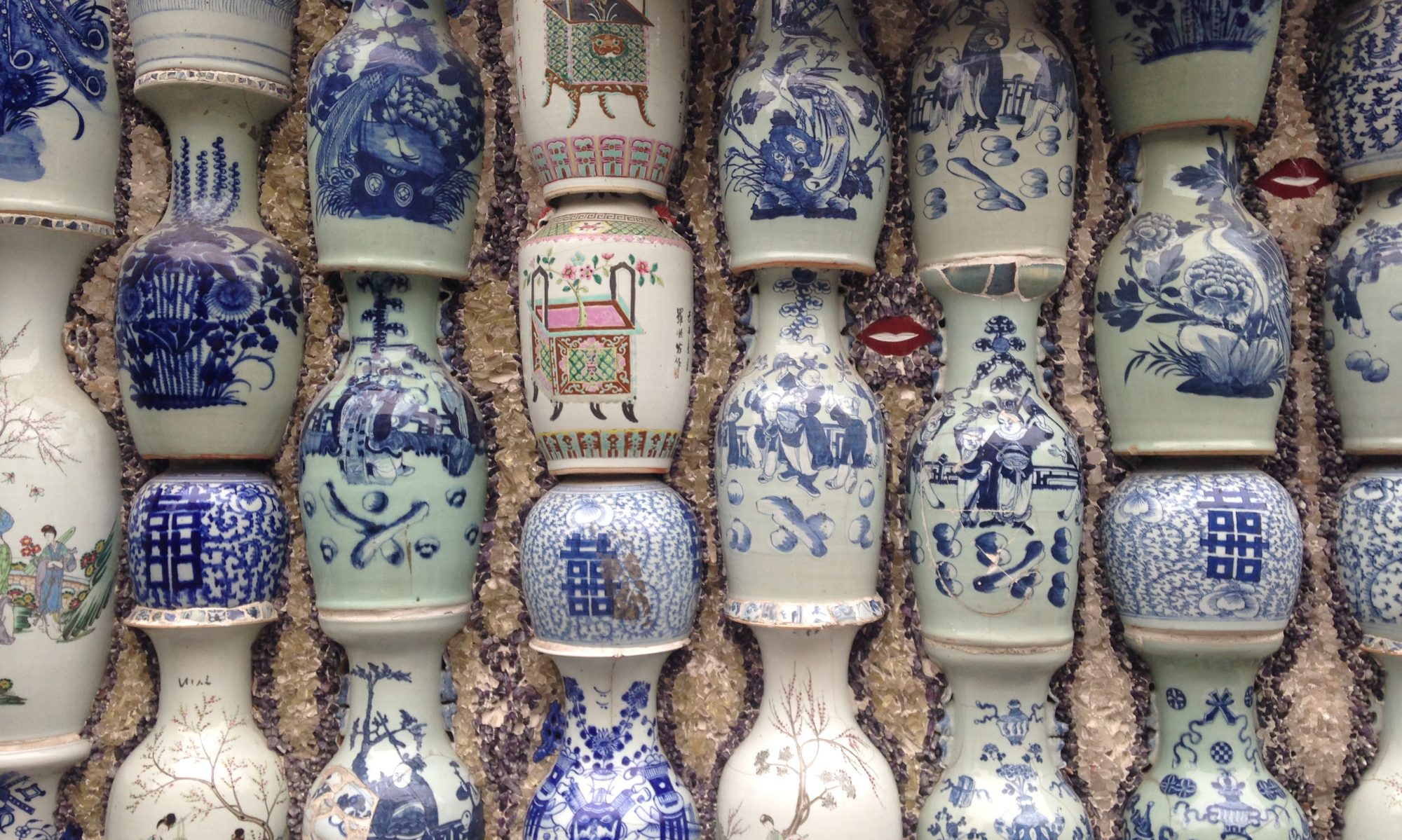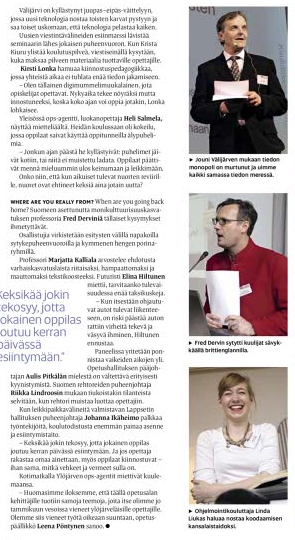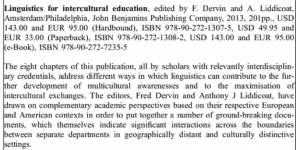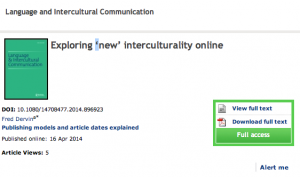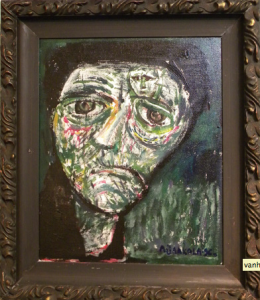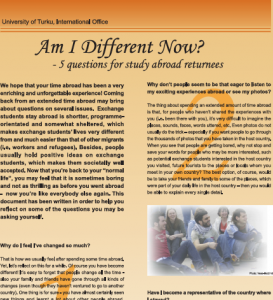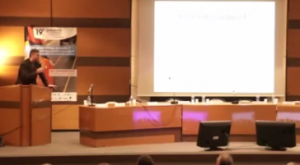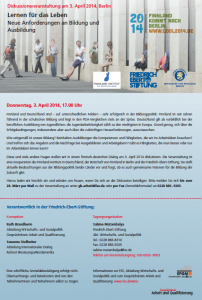Review of Linguistics for Intercultural Education
Read HERE
New article
Self-Knowledge is “unappetizing”
“La connaissance de soi est à la fois inutile et inappétissante. Qui souvent s’examine n’avance guère dans la connaissance de lui-même. Et moins on se connaît, mieux on se porte”. (Clément Rosset (1999))
(“Self-knowledge is both unnecessary and unappetizing. Those who often examine themselves do not much advance in the knowledge of themselves. And the less we know ourselves, the better we feel.”)
There is no self without the other and no other without the self… Trying to know ourselves without reflecting on the hyphen between self and other does not map sense…
Recommended!
Great documentary called “Me & My Nose” (available on netflix amongst others)
(Ziska Szemes / Denmark, Sweden / 2009 / 28 min).
Am I different now ? Brochure for returnees
This brochure was produced by Paula Merikko and myself in 2006! Enjoy
And as always, please mention authors!
Brochure available for download HERE
CFP: Acknowledging the autonomy, creativity and criticality our students bring with them
2nd Call for Papers
*Theme: Acknowledging the autonomy, creativity and criticality our students bring with them*
*Tuesday, 1st July, Canterbury Christ Church University *
A free one-day conference for those researching in the fields of applied linguistics, TESOL, modern languages, intercultural communication and education.
*Invited Speakers:*
*Fred Dervin, University of Helsinki <http://www.canterbury.ac.uk/arts-humanities/english-language-studies/Documents/Fred-Dervin-is-Professor-of-Multicultural-Education-at-the-University-of-Helsinki2.pdf>|*
*Yvonne Stewart, Canterbury Christ Church University* <http://www.canterbury.ac.uk/education/childhood-studies/Staff/Profile.aspx?staff=7c6cbf7af85ed56b>|
*We invite papers which deal with:*
* recognising and researching students’ existing autonomy, critical thinking and
creativity
* appreciating and researching students’ existing linguistic ability and cultural
competence
* exploring how professional practice can sometimes get in the way of seeing the
potentials students bring with them
* allowing space for unexpected student contribution
* drawing links between student contribution and research-based, project-based or
open learning
* experience of student innovation within the curriculum
* the hidden curriculum
* secret or private sites of learning
* marginalised cultural realities
* learning from the margins
Papers will be 20 minutes plus ten minutes for discussion. However, we will consider proposals for discussion forums.
*Second call for abstracts – deadline Monday 12th May*
Please email your abstract of 150 words, plus name, affiliation, title to: cuttingedges@canterbury.ac.uk <mailto:cuttingedges@canterbury.ac.uk%20>
Abstracvt |Forms for submitting abstracts and registration can be found at
*_Also:_**Research Seminar – Researching the Hidden *
*1.00pm to 5.00pm on Monday 30th June*
This will look at how we get at truths and meanings which are hidden by popular, academic and professional dominant discourses. One specific example of this, which relates to the conference theme the following day, is researching unrecognised contributions of our students.
Adrian Holliday and Fred Dervin will lead the discussion, which will be followed by participants’ contributions from their shared research and professional experience, and perhaps the experience of not being recognised themselves.
New online talk (French)
New article
The ‘intercultural’ is now omnipresent in most departments of teacher education in Europe and elsewhere. It can be implemented under the guise of, amongst others, multicultural, transcultural, global and/or development education. In this paper, I problematise post-intercultural teacher education. The context of this study is that of Finnish education. Famed worldwide for its ‘miraculous’ educational system, Finland is rarely talked about for dealing with diversities in education. In this article, I explore the impact of a course on ‘multicultural education’ given to a cohort of ‘local’ and international student teachers studying to become Newly Qualified Teachers. I taught the course myself and decided that since only 8 h would be devoted to the issue of interculturality, the course would have to help the students to learn to develop quickly critical competences towards the many and varied approaches to diversities that are ‘available on the market’. The methodology rests on the use of a documentary on ‘extreme’ intercultural dialogue that the students discussed at the end of the course. Set in Israel, the documentary follows a class in a multicultural school in Tel Aviv during the second Gaza War in 2008–2009. I hypothesise that the documentary, which is often conflictual, would help me to evaluate the students’ learning and how they discuss and problematise such a case of ‘intercultural dialogue’ in education and relate it to their future practice.
Berlin event (3.4): Lernen für das Leben Neue Anforderungen an Bildung und Ausbildung
REGISTRATION HERE
